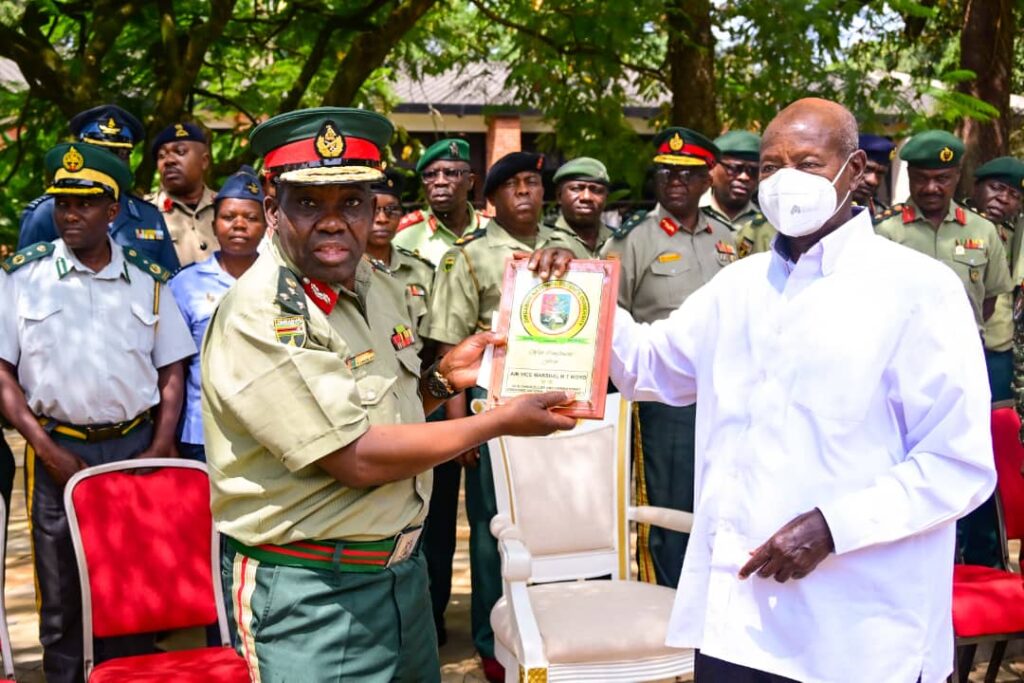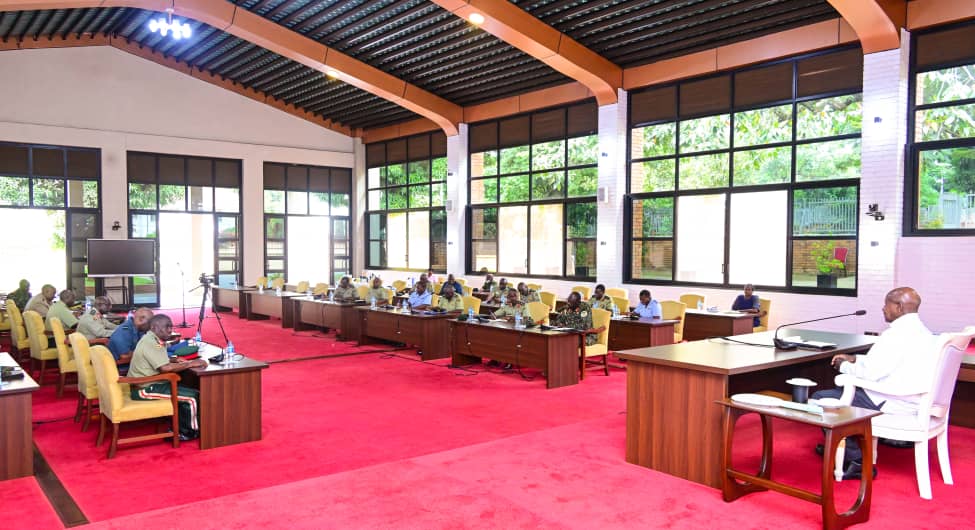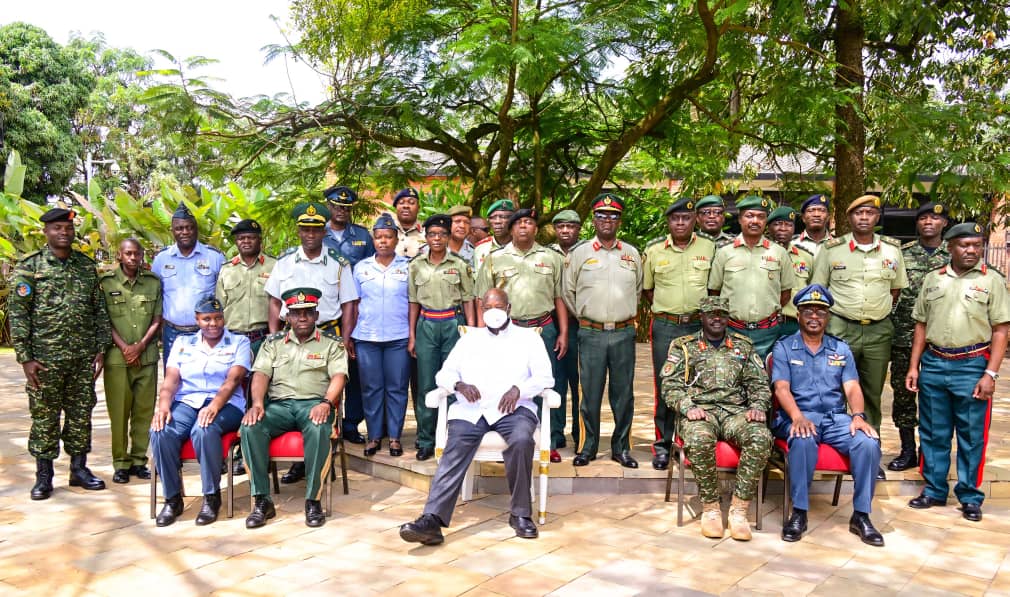
NAKASERO.
President Museveni has today delivered a lecture on economic and strategic transformation to a delegation of officers from Zimbabwe’s National Defence University, emphasizing Africa’s need for unity, industrialization, and self-sufficiency.
Speaking at State Lodge Nakasero, President Museveni addressed 22 officers from Zimbabwe, underscoring the historical friendship between Uganda and Zimbabwe, dating back to the liberation struggles when Robert Mugabe stood with Uganda’s National Resistance Army (NRA).
“The relationship between Uganda and Zimbabwe is fraternal. Even when we were fighting here, Robert Mugabe was with us,” the President remarked.
The President traced Uganda’s ideological foundation to the 1960s, a time when African politics were dominated by religious, tribal, and sectarian divisions. He explained that the National Resistance Movement (NRM) asked critical questions at that time: such as “Do Africans deserve prosperity? If so, where does prosperity come from?”
“We realized prosperity cannot be achieved through begging or aid. It comes from producing goods and services and selling them to earn income.”

He argued that tribalism cannot drive prosperity because internal markets become saturated. Using the example of cattle keepers, he said that no one from the same tribe will buy what they themselves also produce.
This, he noted, gave rise to the NRM’s first principle: Patriotism.
“Love Uganda because you need it for your prosperity,” the President said, warning that a sectarian army cannot deliver national security.
President Museveni then explained that Uganda’s production had surpassed the internal market, leading to the realization that Uganda needed regional buyers — which birthed the second principle: Pan-Africanism.
“Love Africa because you need it for your prosperity,” he added.
The third principle, Socio-Economic Transformation, emphasizes modernizing African economies by shifting from muscle power to machines and modern technology.
He explained that Uganda’s historical mission is to link its economy to the rest of Africa to ensure prosperity, while achieving strategic security through stronger regional integration to guard against external threats. He added that promoting political integration through federations where possible would enhance both economic and strategic security.

He warned that development alone was insufficient, citing World War II, where even advanced nations suffered aggression.
“That’s why Africa must embrace both economic integration and political federation,” President Museveni advised.
He also criticized African leaders after independence for abandoning these critical historical missions.
Brig. Gen. Francis Chakauya, head of the Zimbabwean delegation, praised President Museveni for his insightful and visionary leadership, noting that the delegation had gained valuable knowledge from the interaction.
Brig. Gen. Wycliffe Keita, the head of Joint Staff – Training and Doctrine Command at the Uganda People’s Defence Forces (UPDF), led the Ugandan side of the engagement.
The visit underscored Uganda’s continued commitment to sharing its experiences with fellow African nations in the pursuit of shared prosperity and security.